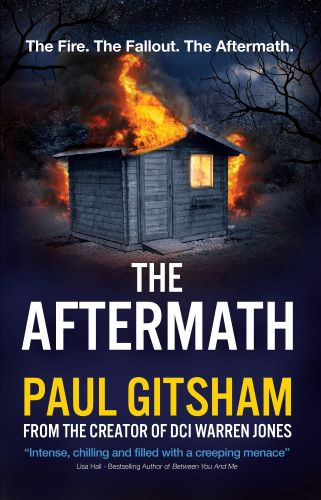The question we all dread:
Where do you get your inspiration?
The question has, somewhat unfairly, become a bit of a cliché – often the sign of somebody new to these events. Seasoned veterans of such gatherings tend not to ask, instead trying to think of something a bit different.
(If you think I am being somewhat snobbish and unfair, I mean no disrespect and place myself firmly in this category. I too eagerly awaited the answer to the infamous question – before eventually realising that it is one of the most tricky questions you can ask, and steering clear.)
But when it, or similar queries are asked, the response from the panellists is often the same – a deep breath, a pursing of the lips, followed by the apparently gallant “why don’t you start us off…”, with the person they have successfully passed it over to trying not to glare.
So why is it so difficult? Well the thing is, inspiration rarely comes with an audit trail. Even informal conversations between groups of writers in the bar – away from the pressure of a stage, microphone and audience – will often show that we rarely know where our ideas come from. They just appear. And if we knew exactly where they did come from, we’d all be camping there, armed with a notepad and a Dictaphone.
The question “Where do you get your inspiration from?” can be deceptively overwhelming. For a start, what is the questioner actually looking for? A general feel for what we are doing when the magic comes? A curiosity about what led to some specific choices that you have made? Or are they a writer themselves, perhaps seeking guidance on where they too can find and bottle some of that wondrous elixir?
That’s not to say we can’t necessarily relate the genesis of a specific idea – the theme for a book or an individual character may well be born of a particular event or person that we met or read about.
For example, my daily commute once involved driving along a wide, flat, open road across the edge of the Cambridgeshire Fens. Looking around me, the surrounding farmland seemed to stretch endlessly and on a quiet morning it was desolate and lonely. One day, the morning news bulletin on the radio was reporting on the arrest and conviction of a family that had enslaved vulnerable men for decades, forcing them to live in horrendous conditions on their remote farm and coercing them into working for nothing. At that moment, an idea was born. It percolated in my head for years, but I know with certainty that the seeds for one of my books were planted that morning.
Other ideas are more nebulous. One of the themes in Forgive Me Father concerns gambling addiction. I cannot tell you when my long-held, instinctive uneasiness with the general notion of gambling, and the industry that runs it, metamorphosed into something that I felt angry enough to write about. But eventually it did.
So here is my advice:
Questioners: Try and be more specific. Instead of asking “Where do you get your inspiration from?” try “Where did the idea for X come from?”
That sort of closed question helps the author focus their thoughts and answer your question more satisfactorily.
Authors: Prepare some stock responses. If you have some generic answers that you can give eg “All my books are set in rural Ireland, because I grew up there and I know the people and the landscape…” that’s terrific.
If, like me, you would struggle to come up with something like that, then why not just pretend the question was more specific?
“Where do you get your inspiration from?”
“I started my career in research, and so when I came to write The Last Straw, I drew upon my years of working in academia…”
If you are there to promote a specific book, then think about an answer that points back towards that book or perhaps another in the series.
But finally, let me try and answer that question myself.
Ideas can strike anywhere, but as a writer of crime – and police procedurals in particular – there is one good source that has provided many a spark that has eventually grown into an idea.
My partner and I watch a lot of true crime documentaries (perhaps too many…). As I watch them, I occasionally find myself jotting down an idea on my phone. But if you were to then read that one-line thought back, I defy you to work out how the programme I was watching led to it. Because it didn’t, not really. Rather a stray comment or thought led to me thinking, “if that happened, then maybe this could happen. Which surely would mean this is possible and oooh, there’s a thought, what if somebody decided to hide their tracks by using a…”
And so there we have it. An answer that attempts to respond to the question that we all dread. Would it be satisfying or entertaining to an audience? Who knows? I’ll let you be the judge.
So where do you get your inspiration from?
Share your thoughts in the comments or on social media.
All the best,
Paul




















